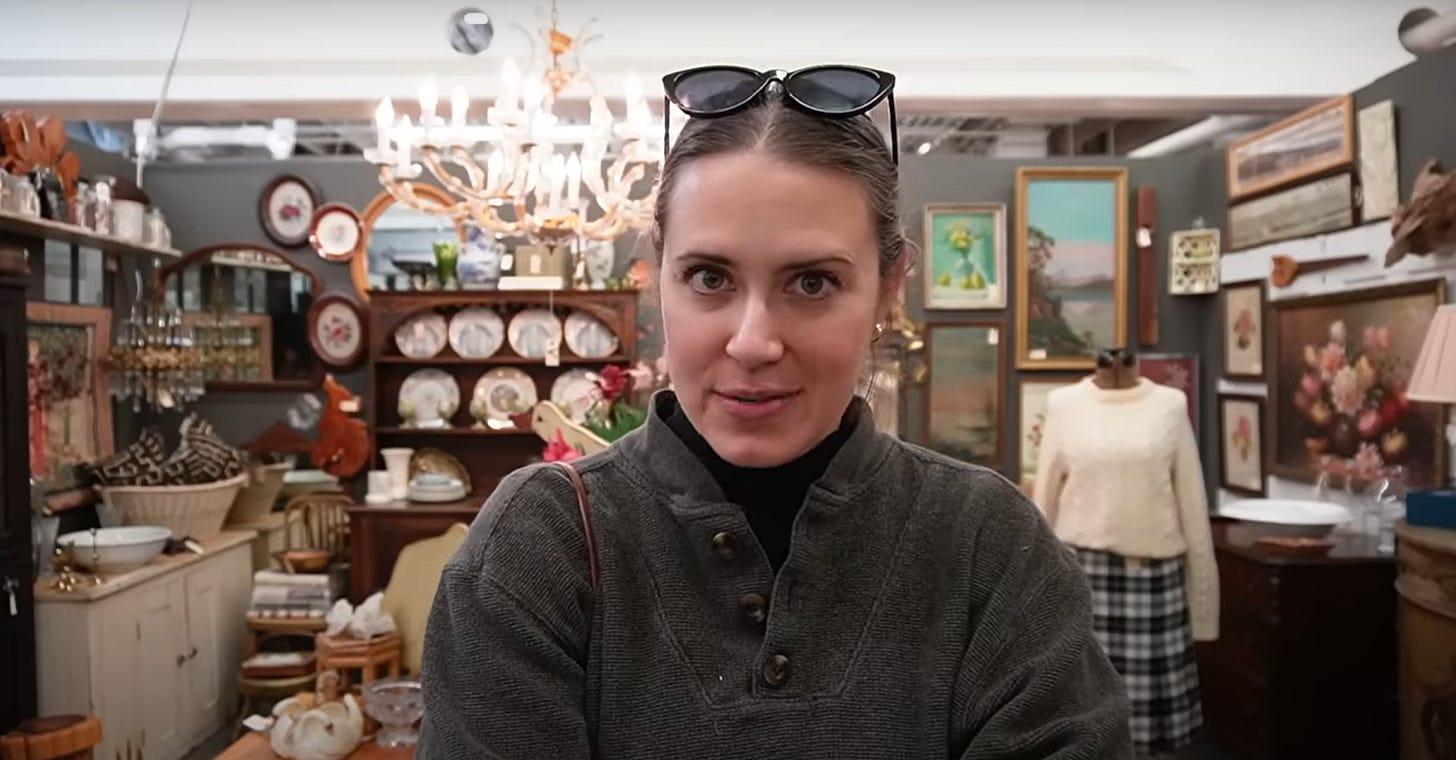Issue 11. What if we don't *actually* want what they have?
Taking a closer look at what we really want
How many times have we purchased or styled something that looked good on someone else, only to realize it looks. . .different on us?
These days, when I see something that looks great on someone else, I remind myself, I don’t necessarily want what they’re wearing, but I want to look as good as they look. Or, more specifically, I want to look as good as I think they look.
“I think” is the key. Inherently subjective. There is no objective value or rating scale. It’s just, a gut feeling of “they look good.” Making the jump from “they look good” to “I need what they have” is largely marketing’s doing. The ‘thing’ is the focus, the key, the thing that made all the difference. But is it that simple?
When it comes to evaluating how we (ourselves) look, being objective is extremely hard. We very rarely (if ever) see ourselves in the same type of situation to the person we’re comparing against. This is because we simply can’t see ourselves as the way we can see people we interact with. Unlike them, who we see as full, 3D people, the glimpses we get of ourselves are what’s reflected back in the mirror, distorted video clips and still images. Just a fraction of who we really are and how others experience us.
Understanding the variables is important to me, as my day job is as a Researcher. A key component of conducting research is making reasonable comparisons, with as few variables changed as possible. Comparing our perception of our appearance to our perception of other people’s appearance is inherently flawed. We have so much less data on our own appearance than we have for other people. Or, in the case of comparing ourselves to still graphics and videos we see online, I’ll leave it to someone else to explain how much manipulation and skill plays into many images we come across.
Why does any of this matter?
In many aspects of the world, I believe that structural forces keep some people down and unnaturally benefit others. However, I do believe (choose to believe) that how we view the world, and how we view ourselves, is largely within our purview.
Michael A. Singer, in his book, The Untethered Soul, explains beautifully how we are not our thoughts. When we think someone else ‘looks good,’ this is not an empirical truth. Instead, its a thought, an opinion, its not ‘fact.’ Same goes for any negative thought we may have about ourselves. This negative or judgmental thought we have about ourselves also is not necessarily a fact, its just a thought.
We can let these thoughts, opinions, and feelings wash over us instead of accepting them as true, or proving to ourselves that they’re false.
Here’s a fashion-related example:
I really enjoy watching Amanda go antique ‘picking’ and makeover her vintage booth via her YouTube channel, Amanda’s Mercantile.
Very often, she’s accessorized with a great pair of sunglasses.
In the past, I may have told myself a big story upon seeing her looking good in these sunglasses!
Something along the lines of, “Wow she looks so good! I don’t look that good. I never look that good! The sunglasses look so good! I need sunglasses like those. I will buy sunglasses like those and then I will look good. Problem solved!”1
But what if we let these thoughts just be thoughts, not the truth?
Today I land somewhere more like this, “Wow she looks so good! I probably don’t look as good. I’d like to look that good. I’d like to wear things that make me look as good as she looks, whatever that is for me.”
I purposefully included the negative self-talk in both examples. Meditation isn’t about shutting down negative thoughts or feelings. But, overtime, we can loosen our grip on our thoughts and one day we may be open to challenging assumptions and beliefs about ourselves we’ve held tightly for years.
Practicing mindfulness can help us identify the things that can become our signature, the aspects of style that make us light up.
Style comes through trial and error. Seeing what does and doesn’t make us light up. What makes us feel good. Because we can’t control how others perceive us, we can only control how we perceive ourselves.
Let me know in the comments...do you meditate? If so, has meditation influenced your relationship to personal style?
Another great resource on the concept we are not our thoughts. I also recommend the Headspace app for guided meditations.







"We can't copycat our way to style" is the lie I still choose to believe. If I buy everything she has then maybe I will know how to get dressed in the morning. Or, the more insidious, if I have her dress then my vacation will look as lovely as hers. If I have that sweater then my date night will be as romantic as hers appears. Again, so much "appearance" but no access to the reality of things. I love the idea of taking the thought hostage and reworking it.
Yes yes yes to all of this! You articulated this concept so beautifully- I am super PMSy right now and needed this lovely reframe.